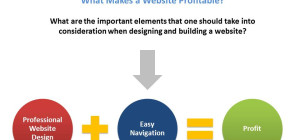 Here’s a fun exercise: Dig deep into your brain and ask yourself the number of apps you downloaded last month. If your answer’s one or more, you’re in the minority.
Here’s a fun exercise: Dig deep into your brain and ask yourself the number of apps you downloaded last month. If your answer’s one or more, you’re in the minority.
Apps are all the rage these days, which’s hardly ever more apparent than when we talk to our clients about their digital requirements.
However, the reality is: apps are kind of like spinach.
Everyone will tell you spinach is good for you. They’ll extol its benefits in convincing and extensive detail. But when you hurry to Whole Foods, purchase some, and prepare them up – all you get is a mouthful of plant matter slightly reminiscent of burying your face in garden mulch.
Which’s when you recognize: spinach may be good, however it just isn’t for you.
Apps are the same method. You’ve heard they’re the holy grail of digital marketing, but you do not actually know for sure. (Though it’s clear from your app designer’s rates that they think it’s the holy grail.).
And something in your gut tells you that apps, like many expected holy grails, might be more of a snipe.
Lots of company owners don’t have that impulse. They wish to ride the wave – even though they do not completely understand it. They see apps as a golden ticket for staying ahead in a marketplace occupied by tech-obsessed, millennial, digital natives.
What they don’t understand is that most of those digital locals download absolutely no apps monthly. More on that later on.
So what is an app, anyway?
I asked Google “what is an app?” and here’s what it returned:
” A self-contained program or piece of software application created to fulfil a specific purpose; an application, especially as downloaded by a user to a mobile device.”. The personnel word phrase here is to satisfy a specific function.
An app lives or passes away by its purpose. You might say the exact same of a website, but in general, a website exists to satisfy a different function.
An app requires to attain a function that a website cannot achieve. And there are actually only 2 scenarios when an app can do that.
The 2 reasons you may require an app
There are 2 significant criteria that validate purchasing an app. You need to meet at least one for the app to have any level of relevance or desirability, and they both depend upon purpose.
- The business constructing the app has considerable brand name acknowledgment.
Take Pepsi, for example. They have actually an app called Pepsi Pass that lets people “access unique rewards” when they buy Pepsi items.
We ought to discover 2 aspects of this app:
The app serves a purpose: that of fulfilling clients for purchasing the company’s product (i.e., expressing brand commitment). Since people care about Pepsi enough to want such rewards, it works.
The app is also not a mobile version of the site. The very first cardinal sin of app development is creating an app that primarily simply duplicates the company website in app form. What’s the point?
Keep in mind how we stated that apps and sites serve different functions? This is a case in point: If individuals wish to learn about Pepsi, they’ll find Pepsi’s website in their mobile web browser, not download an app.
It’s everything about phases in a process– someone who’s simply discovering a brand doesn’t desire their app. They wish to learn about the brand name initially, then, maybe, they’ll decide they care enough to get the app.
- The business’s product/service is the app
Snapchat’s essential function (receiving and sending disappearing videos and photos) just works on their app. An app is the ideal platform for Snapchat because the app is rather literally their whole business. It makes sense as a mobile app since it takes advantage of core features of a phone: a cam with video abilities, plus easy and fast access.
This is perhaps the best example of how app-centered business can be successful. The app not only has a purpose, it is the purpose of the business.
Have you ever been to Snapchat’s site? Me neither. It serves its own purpose: to get people to download the app.
Why an app is generally the wrong decision
Frequently, individuals translate the earth-shattering success of Snapchat and Uber as evidence that, “Apps are in. We need to get one.”.
Okay, sure– but only if your idea fits one or (preferably) both of the criteria above.
Most smart device users only use 6-10 apps each week. Statistically speaking, yours is probably not one of them.
Perhaps it has a lot of potential if your customer believes their app has the chance to break into the leading 6-10 apps for the typical user. If not, get a responsive web design rather.
Nobody downloads apps.
Okay, so possibly nobody is an exaggeration, but not by much. Most smartphone users download no apps per month.
How is that possible? Well, people are quite looked after when it concerns apps they require. For a brand-new app to break the top charts and see day-to-day usage, they’ll require to invent/discover new requirements that aren’t currently met (like Snapchat did).
According to Quartz, “only about one third of mobile phone users download any apps in a typical month.”.
And even if people do presume regarding download your app, it’s extremely not likely that they’ll keep utilizing it.
The average retention rate for an iOS app thirty days after download is 3.2%. That suggests that just 3.2% of individuals who downloaded your app will still even have it on their phone simply 1 month later. I don’t like those odds.
- The typical high-quality mobile app costs about as much to build as a Lamborghini Gallardo.
- The top 1% of generated income from apps generate 94% of the App Shop’s earnings.
I won’t belabour these points, but it just strengthens what we have actually currently outlined: Apps require to have a strong purpose and an essential performance to be worthwhile and widely embraced.
Responsive web design is the right option. It’s really what your customer was asking for the whole time.
You’ve probably heard a client say this:
” I need an app so my customers can find my website and purchase my items from their cellular phone.”.
You and I both understand that what the customer is searching for here is a responsive site. He just doesn’t know it. (And as a freelance web designer or firm, part of your task is to help your customers learn about their choices, and the right solutions to their problems.).
People look for services on their mobile web browsers, not the App Store.
A few days ago, I chose I required a hairstyle. I wanted to change things up and look for a new barber store, because the one I generally go to is overpriced.
I opened up the App Store on my iPhone, typed in “Barber shops London” and got an excellent list of shops near me. I ended up having an excellent experience and will definitely return.
Simply joking. That would never happen.







